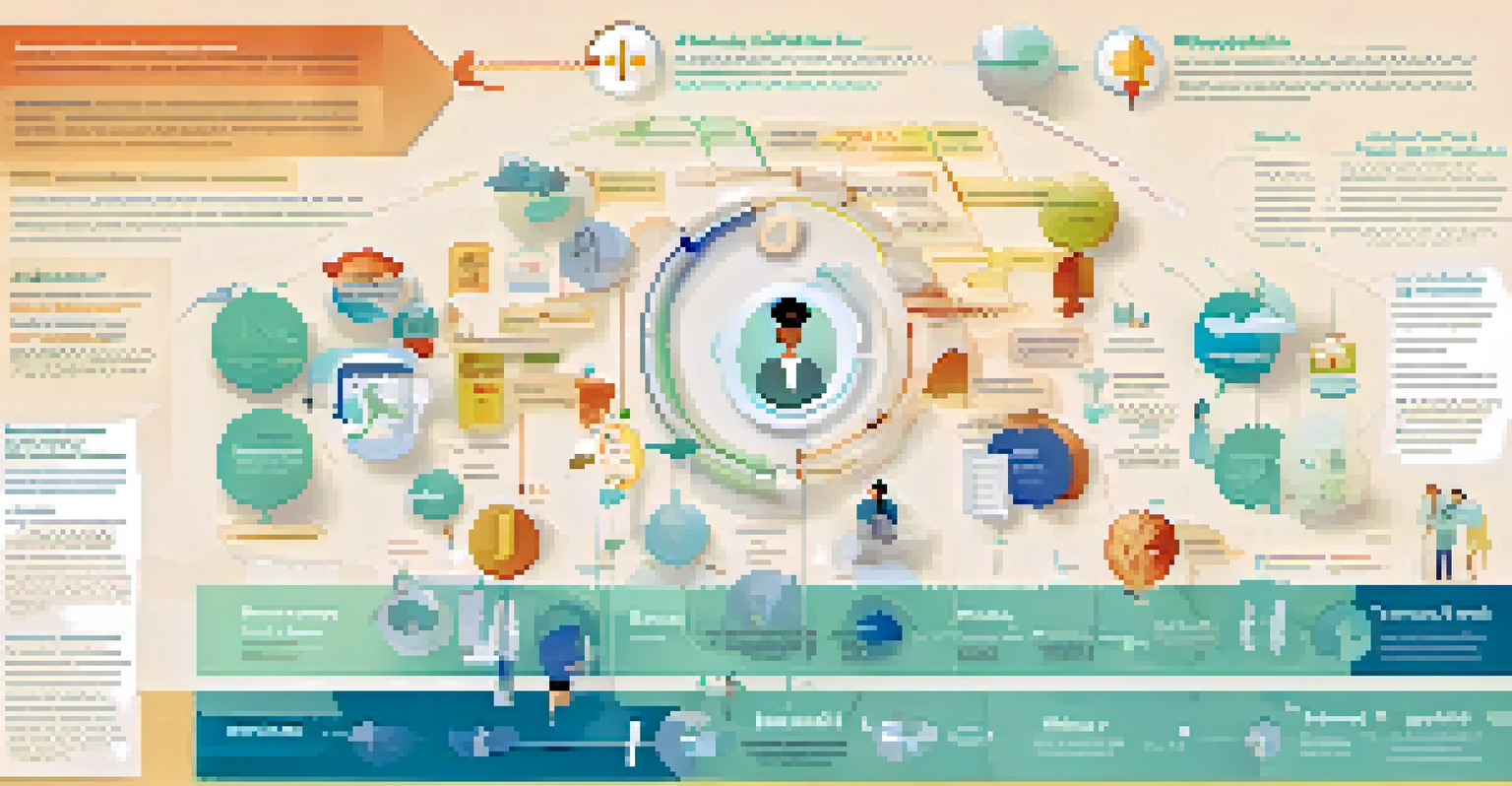The Role of Family History in Preventive Medicine Practices

What is Family History in Healthcare?
Family history refers to the health information about your relatives, including diseases and conditions that may run in the family. It provides healthcare providers with a broader context of your genetic predispositions. Understanding this information is crucial as it helps in identifying risks that may not be apparent from personal medical history alone.
The greatest weapon against stress is our ability to choose one thought over another.
For instance, if your parents or siblings have a history of heart disease, this could indicate a higher risk for you. By knowing these details, doctors can tailor preventive measures specifically suited to your situation. This proactive approach can be a game-changer in your health management.
Moreover, gathering family health history is a simple yet powerful tool that can empower you and your healthcare team. It’s like having a roadmap that guides the journey towards better health outcomes.
Why Preventive Medicine Matters
Preventive medicine focuses on preventing diseases before they start, rather than just treating them after they occur. This proactive approach can lead to healthier lives and reduced healthcare costs. By investing in preventive measures, individuals can avoid serious health issues down the line.

For example, regular screenings and lifestyle modifications based on family history can significantly lower the risk of chronic diseases. This means that if you know about a hereditary condition, you can take steps to mitigate its effects through diet, exercise, and routine check-ups.
Family History Guides Health Choices
Understanding family health history empowers individuals and healthcare providers to identify risks and tailor preventive measures.
Ultimately, preventive medicine is about taking charge of your health. It encourages a mindset of awareness and responsibility, which can lead to a longer, healthier life.
Linking Family History to Disease Risk
Many diseases have a genetic component, making family history a critical factor in assessing risk. Conditions like diabetes, cancer, and mental health disorders often have familial ties. By understanding these connections, healthcare providers can recommend appropriate screenings and preventive strategies.
An ounce of prevention is worth a pound of cure.
For instance, if breast cancer runs in your family, you may be advised to undergo genetic testing or more frequent mammograms. This tailored approach not only increases the chance of early detection but also empowers patients to make informed health choices.
Recognizing these links can also motivate individuals to adopt healthier lifestyles, knowing that their choices may impact their future health and that of their family members.
Collecting Family Health History
Collecting family health history can seem daunting, but it’s a straightforward process. Start by talking to family members about their health issues and any major illnesses that have affected your relatives. This information can then be compiled into a family health tree or chart.
Consider documenting details such as the age of onset for conditions, any lifestyle factors, and treatments that were effective. This comprehensive view can provide a clearer picture for healthcare providers, facilitating better preventive care.
Preventive Medicine Reduces Risks
Adopting preventive medicine strategies based on family history can lead to healthier lives and lower healthcare costs.
Remember, this is an ongoing process. As family members age or new health conditions arise, keeping this information updated is crucial for maintaining a proactive approach to health.
Role of Healthcare Providers in Preventive Practices
Healthcare providers play a vital role in utilizing family history for preventive medicine. They can guide patients on how to collect and interpret this information effectively. By integrating family history into regular health assessments, they can personalize care plans.
Additionally, providers can educate patients on the significance of preventive measures tailored to their family history. This might include lifestyle changes, screenings, or referrals to specialists for more in-depth evaluation.
Ultimately, when healthcare providers prioritize family history in their practice, it fosters a more comprehensive approach to patient care, leading to better health outcomes.
Challenges in Using Family History
Despite its importance, relying on family history can present challenges. Not all individuals have access to comprehensive family health information due to estrangement or limited communication. This lack of information can hinder effective risk assessment and preventive strategies.
Moreover, some individuals may be unaware of their family health history if relatives have not discussed health issues openly. This highlights the need for encouragement within families to have these important conversations.
Challenges in Gathering Family History
Limited access to comprehensive family health information can hinder effective risk assessment and preventive care.
Addressing these challenges requires both healthcare providers and families to foster an environment where health history is shared openly, ensuring that everyone has the information they need for effective preventive care.
The Future of Family History in Preventive Medicine
The future of preventive medicine is leaning more towards personalized care, with family history playing a crucial role. Advances in technology, such as genetic testing and health apps, make it easier to gather and analyze family health data. This could revolutionize how we approach preventive medicine.
Imagine a world where your healthcare provider has access to your family health history and can predict risks with pinpoint accuracy. This would allow for individualized prevention strategies that are more effective than ever before.

As we move forward, the integration of family history into preventive practices will likely become more streamlined, ensuring that everyone has the opportunity to protect their health based on their unique background.